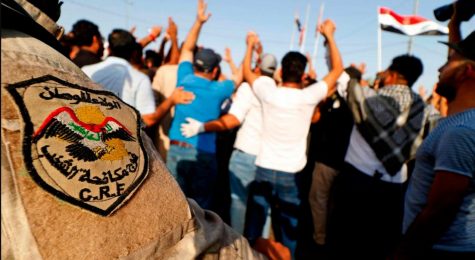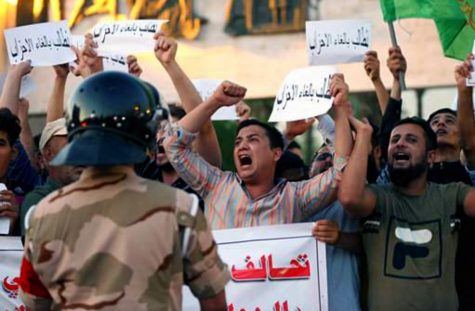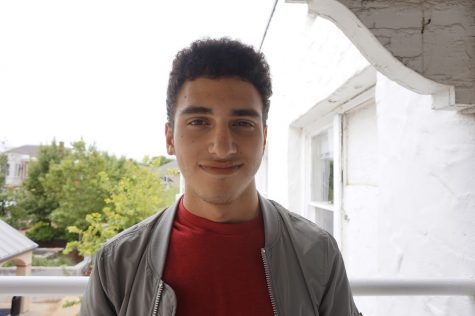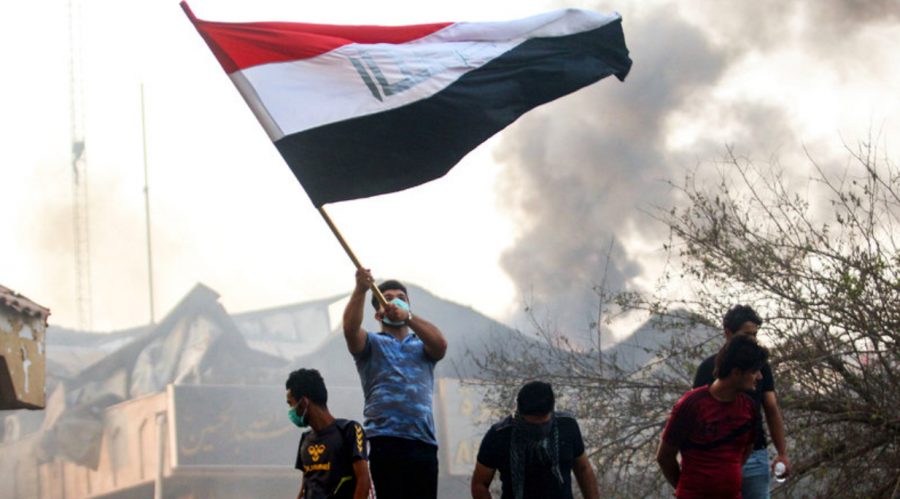Americans Under Missile Fire in Basra; Iraq Aflame with Protests
On September 29th, 2018, Iranian-backed militias fired missiles at the American consulate in Basra, a Shi’ite-dominated city in southern Iraq. No Americans were harmed, but the Department of State has evacuated diplomats stationed there as a precaution to future attacks.
 This attack is the latest development in a series of fiery protests that have escalated across oil-rich Southern Iraq since July. The first protests occurred on July 8th in response to a power outage. Iraq had been buying power from a 1400-megawatt power plant in Iran for years, and Iran abruptly cut Iraq’s power off. Iran justifies the decision by stating that Iraq had overdue power bills.
This attack is the latest development in a series of fiery protests that have escalated across oil-rich Southern Iraq since July. The first protests occurred on July 8th in response to a power outage. Iraq had been buying power from a 1400-megawatt power plant in Iran for years, and Iran abruptly cut Iraq’s power off. Iran justifies the decision by stating that Iraq had overdue power bills.
Iraqis, already suffering under the summer desert heat, were forced to endure a heat wave with temperatures soaring as high as 118℉ with limited air conditioning. This power cutoff sparked building frustrations from months of poor economic conditions, lack of basic services, corruption in the illegitimate Iraqi government, and influence Iran, an enemy of Iraq going back to the 1980 Iran-Iraq War, has steadily increased its influence in Iraq through bribery and funding militias since the American invasion, which toppled Saddam Hussein and reduced the nation’s stability. Furthermore, the Iraqi people chafed under a massive water shortage across Southern Iraq from newly-built Iranian and Turkish dams diverting water and problems keeping freshwater and seawater separated. More than 17,000 Iraqis have been poisoned by chemically-and-bacterially-contaminated water.
Iraqis across Basra and other smaller cities
in Southern Iraq exploded into fury. Protests engulfed the region. Protestors set fire to the Iranian Consulate, the and the headquarters of nearly every Iranian militia in the city. Protests flared in waves for most of July, August, and September, with no signs of stopping in October. At dusk, once the temperatures cool down, protesters gather in the streets, chanting “Iran out!” and calling for a return to normality and Iraqi sovereignty.
Targets have not been limited to Iranian buildings. On September 7th, Iraqis shut down Basra’s seaport for several hours and held hostage two Russian water treatment plant workers for an hour before letting them free. Iraqi government buildings across Basra have been burned down. The protests are an expression of the rage Iraqis feel about their nation: they live in an oil-rich region yet lack basic water, food, and medicine and suffer under a corrupt, foreign-influenced government.
Iraqi government leaders have dispatched soldiers to Basra to keep the peace. Multiple protestors have been killed, with dozens more wounded. Iraqi police arrested hundreds of demonstrators before reportedly releasing them, and the Iraqi government has blocked several social

media sites claimed to be inciting unrest. Iraqi Prime Minister Haider Al-Abadi promised jobs and funding allocations for urban projects demonstration leaders are not satisfied with response, saying that it does not remove the corrupt ministers caused the urban problems in the first place.
The Iraqi protests are likely to get worse before they get better. Since the American-led invasion in 2003, protests across Iraq for similar nationalist and material reasons have been common. Experts express concern that these most recent demonstrations threaten the stability of Iraq, especially given the nation’s challenges against ISIS. “You have an armed populace that is already politically very upset and economically very upset. It’s a tinderbox–and now the matches have been lit,” Phillip Smyth, a senior fellow at the Washington Institute for Near East Policy, explains. And without American troops in Iraq in force to stabilize the protests, as there have been in the past, demonstrations like this are especially dangerous. It remains to be seen whether serious effort at reform will be taken in Iraq to fix these problems for good.

Ben Feinstein is a proud American, a history buff, and a debate and international affairs writer for The Keynote. He plans to serve in the government...

